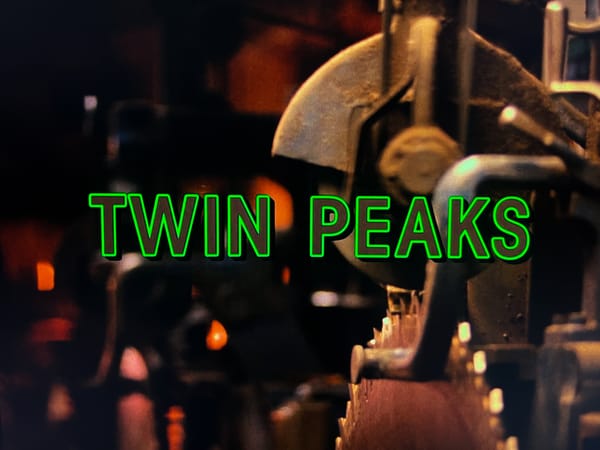Paul is Dead
by Austin Segrest
Our second and last house as a nuclear unit. A disaster from the start, it was built on a hill connecting the dead end of one tiered street on the back side of Shades Mountain (really a ridge) to another. Cost issues, drainage issues, an uncompromising architect. Every night, torrents of blame and recrimination.
Shale-and-thicket, the “yard” two strips running either side of a steep driveway. To the left, it widened to a tiny, always swampy side and backyard cut a few feet out of the hill. To the right, it ran along the edge of the upper driveway. The steep slope fell to a creek. While I mowed the grass, I listened to The Beatles’ eighth album, Sergeant Pepper’s Lonely Hearts Club Band (1976). It’s all I can remember listening to when I mowed, my mowing tape. With a nudge from Mom, I’d take over the task of mowing from Dad (she was always nudging us against him); he was more than willing to oblige. Maybe for the first time, I learned that physical labor agrees with me. The opening of ideas with repetitive motion. And maybe most significantly, a love of old things. The mower was one of those you used to see with the big rear wheels, which made it feel, I think, the more adult. I took right to that violent monotony.
It started with another tape, a Beatles conspiracy documentary called Paul is Dead. Boy Scout contraband, it got passed down from someone’s older brother. I wish I could remember the voice that opened up that chasm of speculation. Was he British? A basso profundo out of the father-void, he took us through parts of Beatles songs and album art, photographs and news releases, suggesting that something was off. If we just paid attention, we might come to the underlying truth that—well, what was the theory, exactly? Were The Beatles hiding the fact that Paul McCartney had died the year of Sergeant Pepper’s (1967)? Hence, the Paul double, who was almost, but not quite a perfect replica? Or were the remaining Beatles cryptically telling us Paul was dead? As if management, the Man, lest a lost Paul spoil sales, were behind the album’s cover-up. Or did John, George, and Ringo even realize the real Paul was dead and the post-Paul a fake?
The evidence that Paul had died: recordings slowed down or sped up or played backward to yield hidden messages; Paul using the wrong hand, standing with his back turned, wearing no shoes. A black rose. A funereal wreath… I listened alone in my room—play-stop-rewind-stop-play. Freaked out, enchanted, distracted by delicious possibility. I had to get my hands on Sergeant Pepper’s, I had to listen to the thing for myself.
Mom agreed to get me the tape. My interest, after all, was cultural, historical. She loved The Beatles but let me know that Sergeant Pepper’s was not to her taste. She might have mentioned drugs. What she loved were The Beatles’ songs—the singles that took her generation by storm—that you could dance to. These were likely the very songs the Fab Four were sick to death of performing by 1967. From there on out, they declared, they were a studio-only band. An art rock group. Entertainment had taken the backseat to concept. Or, rather, The Beatles doubled-down, they deconstructed the very concept of entertainment: myth, mask, façade—like our house’s peach faux-stucco hardened over Styrofoam two feet thick, which arrows and baseballs and handlebars punctured and lodged in. Asked in A Hard Day’s Night (1964) if he was a mod or a rocker, Ringo’s quip that he was “a mocker” was writ large.
The breadwinner while Dad finished med school, Mom was only twenty-three when Sergeant Pepper’s came out. An executive director, anorexic, feeling since childhood crippling responsibility for things beyond her control, I think she missed the rhythm that moved her, in that time-honored tradition, to dance away her blues. She didn’t need to be reminded how empty she felt.
All of a piece, adrift, askew—the mystery of Paul faded into the background. Behind the show was a long shadow. My ears but my mother’s era, one cassette wheel carried me back, textures and contexts that were old but new to me, strange but oddly familiar (it was, after all, where I came from). And one wheel carried me forward, granting a foretaste of my matured sensibility, which I sensed somehow without understanding (it was what I would become).
Background noise of a crowd at a show. Jag of laughter and cheers. Who is Sergeant Pepper? Billy Sheers? It’s a gag, but George’s guitar is strident. Pathos in the harmonies. Paul banging chords and plunking down fat rain drops of bass. John’s voice sped up high in the sky with diamonds. Sitar. The hope of things getting better (undercut by John’s “can’t get no worse”). An antique circus playbill. Vaudeville. Giddy, nauseous, merry-go-round “Mr. Kite.” Performance sickness. George in India. Laughter and oboes. Old-timey hooks, honks, bells. “Yours Sincerely, wasting away.” Then the glory of “Lovely Rita.” Again, that sliding bass. It’s all a wink, “but fictive things / wink as they will” (Wallace Stevens). Paul in total control. Saloon piano. Something silly said beautifully. A jangly, jagged protopunk reprise. Insanity of crowds. Film, news, a war, a book. A song within a song. Ah’s and horns. More holes, chaos, the whole symphony landing on the tonic. I’d always listen straight through, instead of cherry-picking songs like I did with my other tapes—like I had when I’d found Let It Be (1970) among Mom’s vinyl and never managed to get past the title track’s cathedral heft. It seems that my getting Sergeant Pepper’s and taking over mowing coincided. I don’t remember playing it on my stereo in my room, but always outside, through headphones, private. An unknown quantity beside the brands and bands of the day, it was that thing I went most in fear of, even while wanting it, being it: different.
There I go, I’m rolling the Sisyphean stone of manhood, I’m pushing play. With each step along the precipice, the strangeness of time comes over me.
Austin Segrest teaches poetry at Lawrence University.




